PRESERVING A MILITARY LEGACY FOR FUTURE GENERATIONS
The following Reflections represents ETNSN John W. Ditmar’s Jr. legacy of his military service from 1970 to 1973. If you are a Veteran, consider preserving a record of your own military service, including your memories and photographs, on Togetherweserved.com (TWS), the leading archive of living military history. The following Service Reflections is an easy-to-complete self-interview, located on your TWS Military Service Page, which enables you to remember key people and events from your military service and the impact they made on your life. Start recording your own Military Memories HERE.
Please describe who or what influenced your decision to join the Navy.

The village I grew up in had a population of around 2000 and was almost surrounded by water, so swimming, fishing, and boating were a natural progression. I loved to watch the bigger boats on Spring Lake and freighters that would come into Grand Haven at a young age. My early years growing up were not much fun.
My father was a good man but was an alcoholic and was mean to my mother and me when he had too much to drink. There was physical violence. My parents never attended church, but some kind neighbors took me a few times with their kids, which opened my eyes to another world. In those days, there was a stigma attached to being an alcoholic, and despite several attempts by myself and others, my father refused any help. This was a time when my conflicting emotions were off the chart.
A few years after his passing, I learned as much as I could about his family history. It was no wonder he ended up the way he was, and I’ll leave it at that.
My parents separated when I was 11 and divorced when I was 13. I almost flunked the 7th grade. My mother was a rock that kept us going, and I am forever grateful to her. She lived to be 96 and passed in 2017. I do treasure the few good memories of doing things with my father. My high school years were better as I loved music and band. Many neighbors, my two band directors, Harold Luoma and Lynn Middlebrook especially, and teachers in high school helped me get through this time and to graduation.
I finished a two-year Radio and Television Service course at Ferris State University when the first lottery was held for being drafted during the Vietnam War. My number drawn was seven, and my dorm roommate’s number was 5. I knew induction papers would be arriving promptly, so I went to the Grand Rapids Naval and Marine Reserve Center and asked if they needed electronics technicians and was told yes. I took a test, and the recruiter told me the date I would be sworn in was February 1970. Later that day, my induction papers arrived, and I brought them to the CO at the Reserve Center, CDR Elve. He told me he would take care of them, and he did.
Whether you were in the service for several years or as a career, please describe the direction or path you took. What was your reason for leaving?
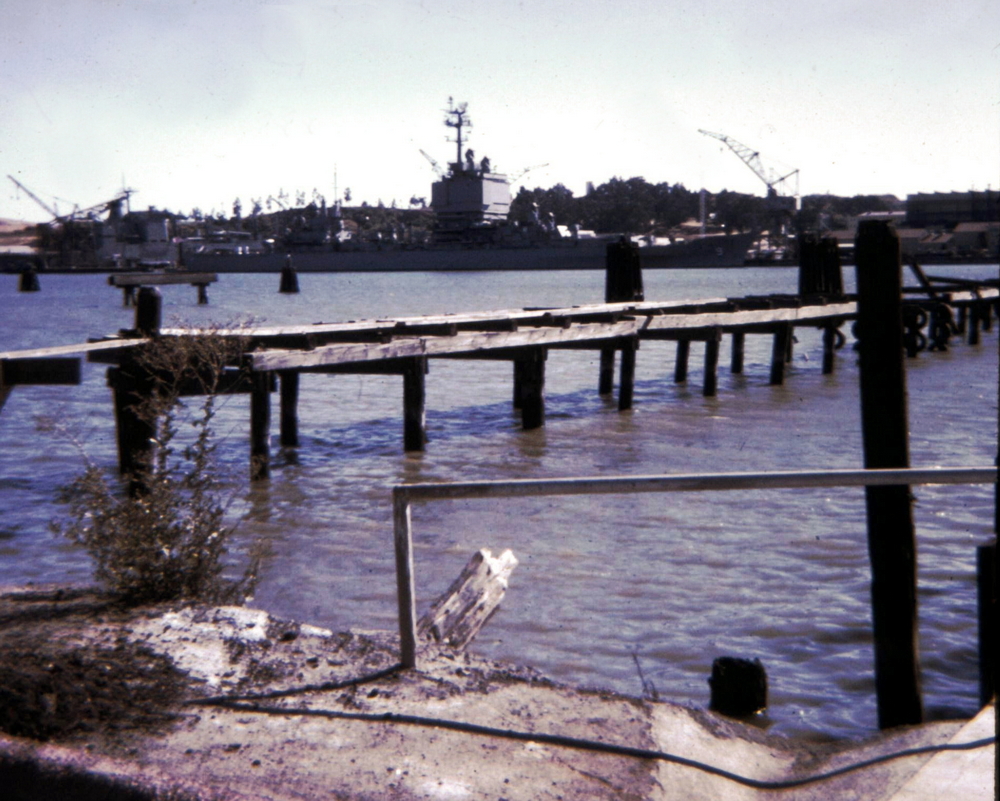
Since I had received training in electronics, I was encouraged in the Reserves to strike for ET as I was told there was a shortage at that time. Shortly before I was to go on active duty, my father passed away destitute and living alone at 59 of an aortic aneurysm. He was a WW2 veteran who served in the Pacific as an airplane mechanic crew chief. Just prior to his passing, he said he was glad I was in the Navy and said it was a good choice.
After a one-month delay, I kissed my wife goodbye, knowing she would teach at the high school in Ludington, Michigan, while I was overseas, and reported for duty on the USS Long Beach CGN-9 in the Mare Island Naval Shipyard. My goal was to serve my country and do the best I could as an ET on the ship, complete my active duty successfully, return home to a domestic agenda, finish college and begin a family.
If you participated in any military operations, including combat, humanitarian and peacekeeping operations, please describe those which made a lasting impact on you and, if life-changing, in what way?
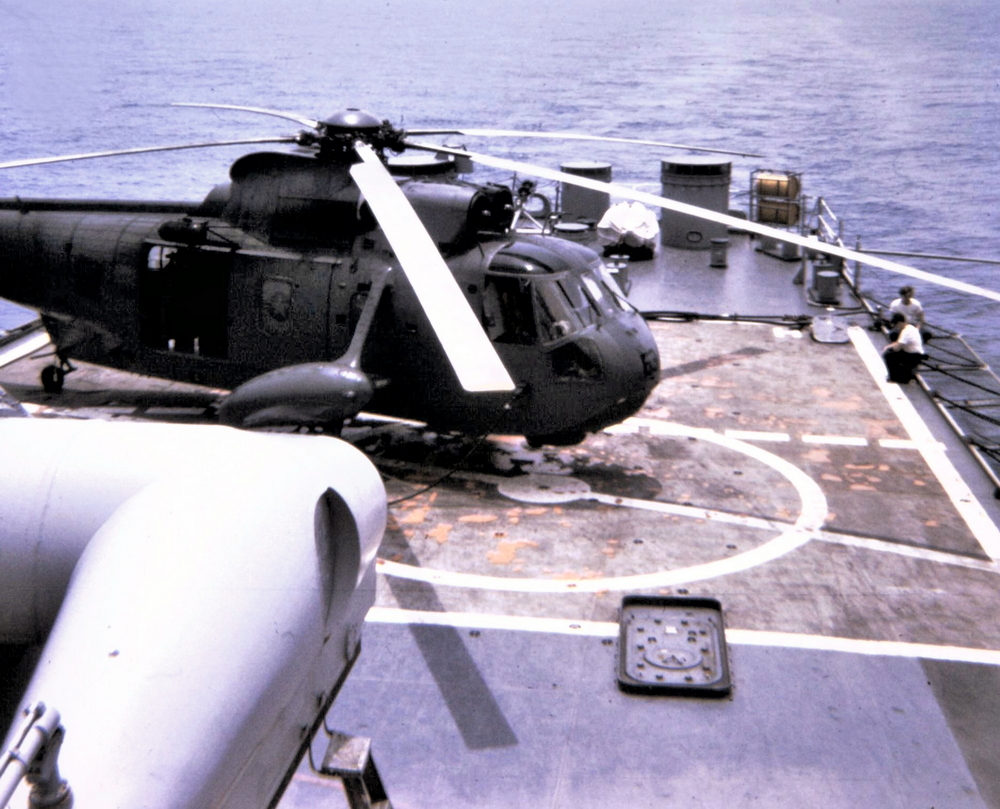
Shortly arriving in the Tonkin Gulf, we were told that we were receiving combat and hostile fire pay, so I knew things were serious. Our ship was tasked with being PIRAZ STATION in the northern gulf. We had plenty of General Quarters, Talos alerts, Terrier alerts, Missile alerts, Flyover alerts announcing A Russian Bear Bomber, and had several Admirals coming and going during our time in the gulf. We also had a chopper onboard that would sometimes arrive with the gun barrel still smoking after picking up a downed pilot or crew member. Our Cruisebook said we were credited with downing nine aircraft and rescuing 17 downed pilots or crew members. Fifty years later, I learned by reading a book that there was a super-secret initiative involving SEALS and a submarine to rescue two prisoners who were going to escape from their captives at what I thought was the Hanoi Hilton. Unfortunately, a SEAL was killed in action, and the mission was aborted. He was the last SEAL lost in the Vietnam war.
I observed how all the different disciplines worked as parts of a finely tuned machine, and you could see how excellent training paid off when we were at General Quarters. The other alerts or exercises demonstrated second nature training, which is as it should be.
During this time, I felt more responsible and became reasonably proficient in my work, which helped build my confidence. One day, we mustered on the forward deck, and I could see an outline of hilly terrain. It was a beautiful sunny day blue sky, and I counted ten vapor trails shooting up vertically from the North Vietnam shore as our planes returned from bombing runs. We could hear bombs or shells exploding on land, and I knew we were close to the action. We were told it was the shelling of Hanoi and mining of Haiphong harbor that had taken place. My thoughts were how insane wars were, and perhaps someday, humanity would be above warring and would all work together to help each other and make our planet a better place to live. I still have hope for that.
I remember saying to myself how great it was to live in a free country. I was more determined than ever to make something of myself once I returned to civilian life and pursued the opportunities available to me.
Did you encounter any situation during your military service when you believed there was a possibility you might not survive? If so, please describe what happened and what was the outcome.
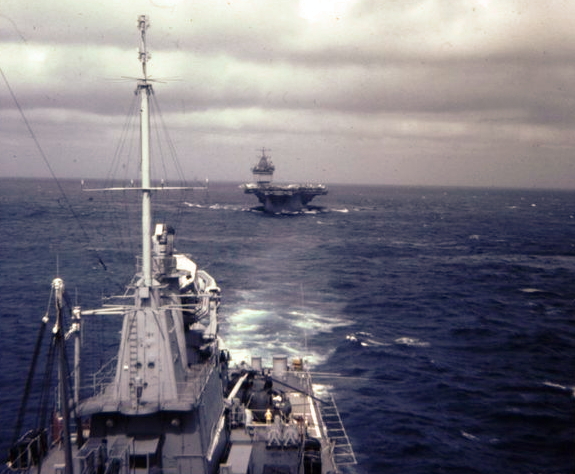
Even though we were in some active areas, our ship had plenty of armament, and escorts were never far away. I never felt personally in jeopardy but only concerned when I was assigned to check out some wiring in CIC. It involved removing a floor plate, sliding in my legs first, and lying on my back with very little clearance. There was no room to turn over, and my chest was scraping the underside of the deck while I was on my back. Just then, someone walked by as I was checking out the wiring panel and said I was between the inner and outer hull of the ship. Hearing that, I thought they would never find me if anything happened to the ship. I quickly worked on the problem and exited that small space.
My thoughts frequently went to our ground forces, chopper pilots, medics, Navy and Marine patrol boats, and supporting troops I knew were facing the unimaginable horrors of war with extreme trauma, injuries, and loss of life. It made me pretty humble and thankful my participation in this war was on the USS Long Beach.
Of all your duty stations or assignments, which one do you have fondest memories of and why? Which was your least favorite?
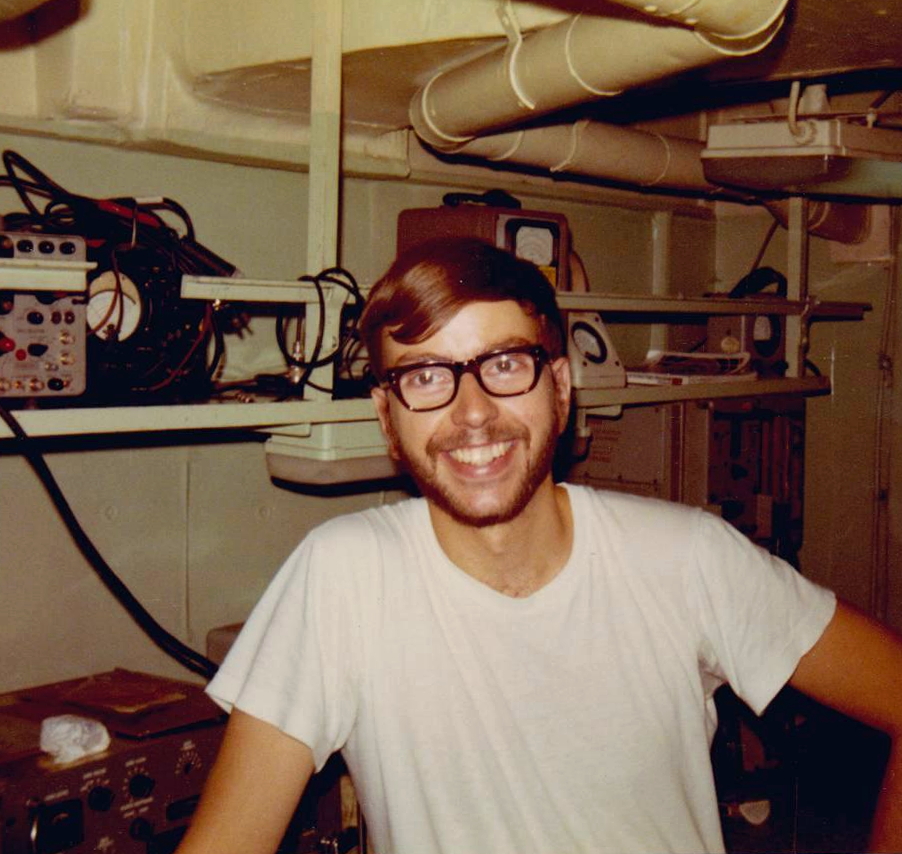
My entire tour of duty was on the USS Long Beach.
My fondest memory was my first meeting with Rear Admiral Rembrandt Robinson. More on this later.
The second was working with our ETs from Shop 2. They all were serious about their work but had a good sense of humor, and if you needed help, they were there. Also, I received calls to check out the UHF AND HF gear in the communications center regularly. It was a very competent group of individuals who manned it, and I made friends with a few of them and looked forward to working there. My ET role allowed me to access many different areas of the ship, and I was amazed at what and how much equipment could be crammed into different spaces. The food onboard was also good, and I marveled at how such high volumes of chow could be produced continuously. We could almost always find a good meal three times a day. My shipboard life was good.
My least favorite assignment was when two other guys I enlisted with, and I had to steel brush and paint the entire anchor chain from the USS Hank DD-702 on the pier in the Philadelphia Naval Shipyard. First black, then yellow, then red paint, but we got it done in 90-degree sunshine. It was a character-building experience!
From your entire military service, describe any memories you still reflect back on to this day.
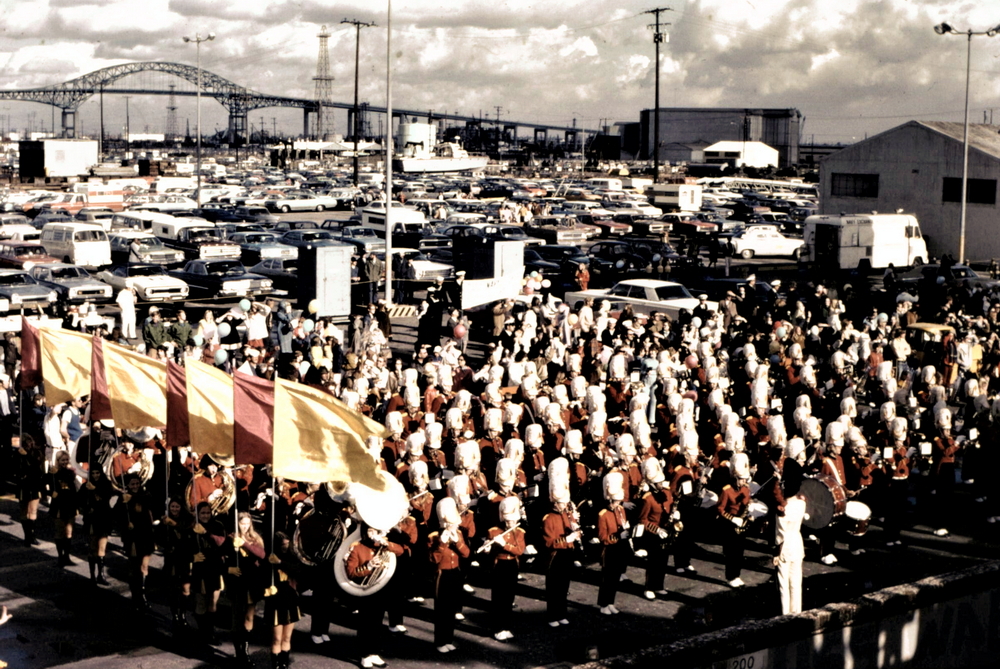
Even though there were officers, enlisted sailors, and marines on board, there were no barriers to getting the job done. Everyone worked together. We were told we had a crew of 1200 onboard, and we stayed out of the way of the Marines during exercises and drills.
One day I was asked to check out the Admirals’ stereo. I couldn’t believe he had a console stereo! Anyway, I brought my tools and knocked on his door. Suddenly he opened the door smiling and appeared bigger than life, with pressed khakis, a great handshake, and said: “Come on in, young man.” I introduced myself and checked out the stereo. When I told him everything was fine, he said thanks and good luck. A few days later, I read in the Stars and Stripes that Rear Admiral Rembrandt Robinson and the chopper crew were lost while transferring to the USS Providence. Here was a man I had only met a few days before, and he was now gone. His character and sincerity have stuck with me to this day. War does not discriminate when it comes to casualties. I immediately remembered his firm handshake and friendly manner and thought even though he was an Admiral and I was a Seaman, we both were working together to complete the job we were tasked with. I later learned that he was very involved in planning the mining of Haiphong Harbor. This made me look forward to returning home to my wife and family in Michigan.
Upon returning from our extended Westpac, I will never forget all the people waiting on the pier and the Wilson High School Marching Band playing. That was great!
What professional achievements are you most proud of from your military career?
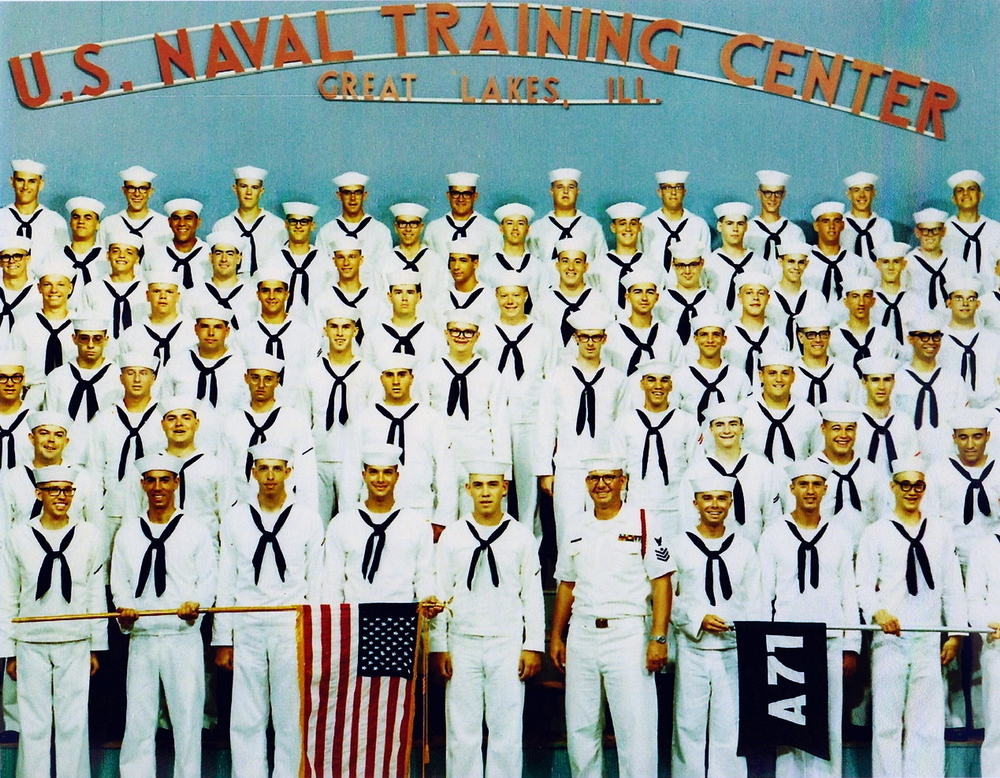
Completing boot camp and being told by CC Griffor that I would be an excellent sailor.
My supervisor, ET1 Paul Giles, told me that my positive attitude and bad puns really helped boost morale in our division while we were on our Westpac and in the Tonkin Gulf. My evaluations were high, even though I had PNA’d two times by a couple of points for 3rd Class ET, which didn’t bother me. We had a great crew in the OE division and worked well together.
During my time on the ship, I completed several college correspondence courses through the United States Armed Forces Institute USAFI. They all counted for course credit when I returned to college after leaving the service.
Of all the medals, awards, formal presentations and qualification badges you received, or other memorabilia, which one is the most meaningful to you and why?
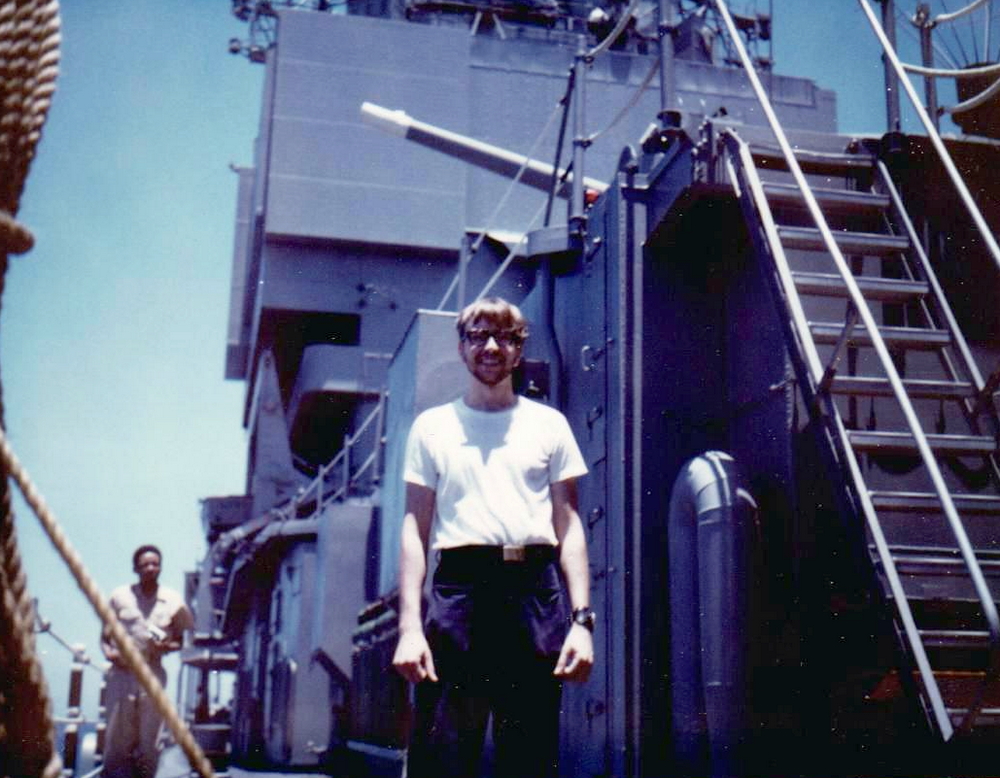
My evaluations were all high and very positive, which meant the most to me. I am a fairly introverted individual.
Which individual(s) from your time in the military stand out as having the most positive impact on you and why?
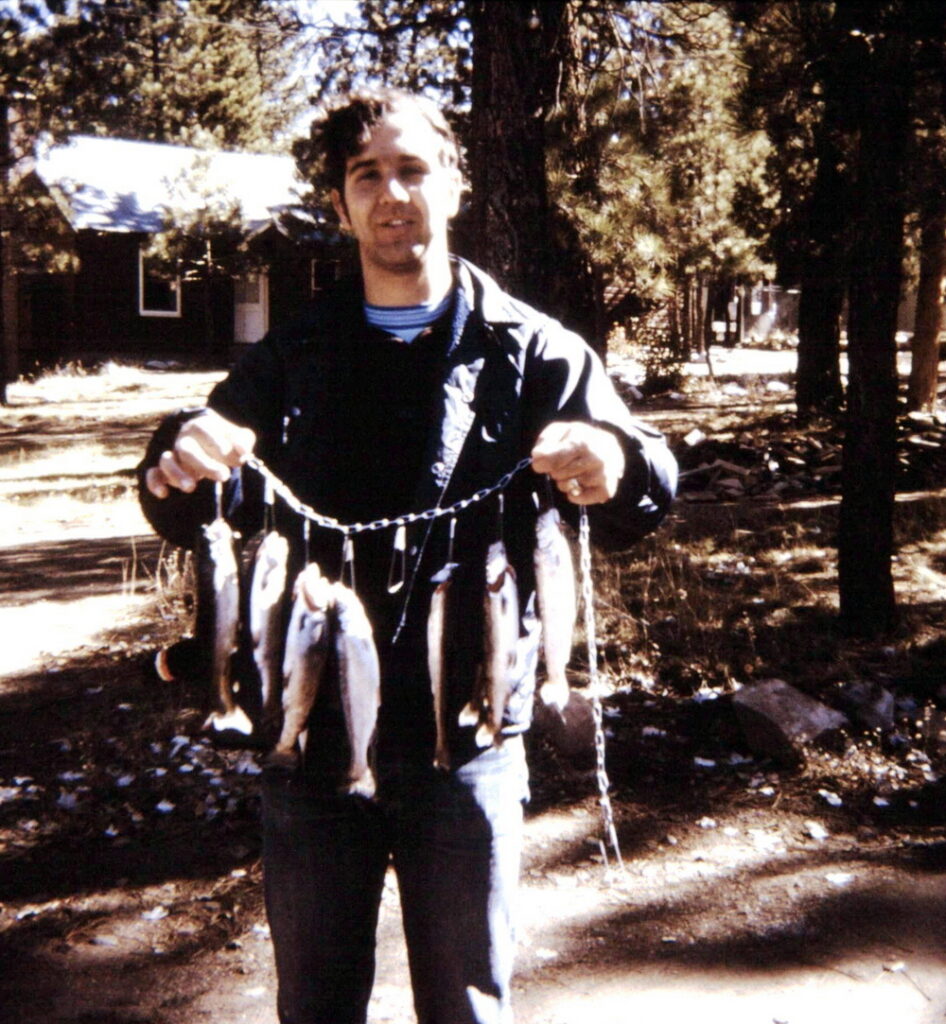
Paul M Giles was an ET1 and my supervisor. He was fair, honest, and supportive during my time on the ship.
ET1 Bob Van Limburgh was the first to take me around the ship and helped me complete the list of requirements for familiarization with the ship.
Glenn E Wells II was an ET2 and helped me whenever he sensed I needed it. Since my wife was back in Michigan, he and his wife were kind enough to have me over for dinner and even go out for dinner a few times before our Westpac.
ET2 Russ Turner and ET2 Phil Johnson were also positive influences, as was ET2 Ron Sprycha, who always talked about the Chicago Cubs. Phil Johnson and I went a few places on liberty together.
ETNSN Lund was also married, so he and I visited our ports of call together and had some great times. We hired a taxi driver, Louie, in Bangkok, for an afternoon. While traveling on the road, we ran over a python!
CWO Mr. Seamon was also a positive influence and a great person to work with.
LT CDR Druart was also a positive and supportive individual.
LT Jones was also encouraging and supportive.
LTJG Brinkman was also a positive influence.
When we were still at Mare Island, PO2 Larry Picha took me fishing at Big Bear Lake for cutthroat trout. That was a great experience.
Like I said previously, we had great individuals in our division.
List the names of old friends you served with, at which locations, and recount what you remember most about them. Indicate those you are already in touch with and those you would like to make contact with.
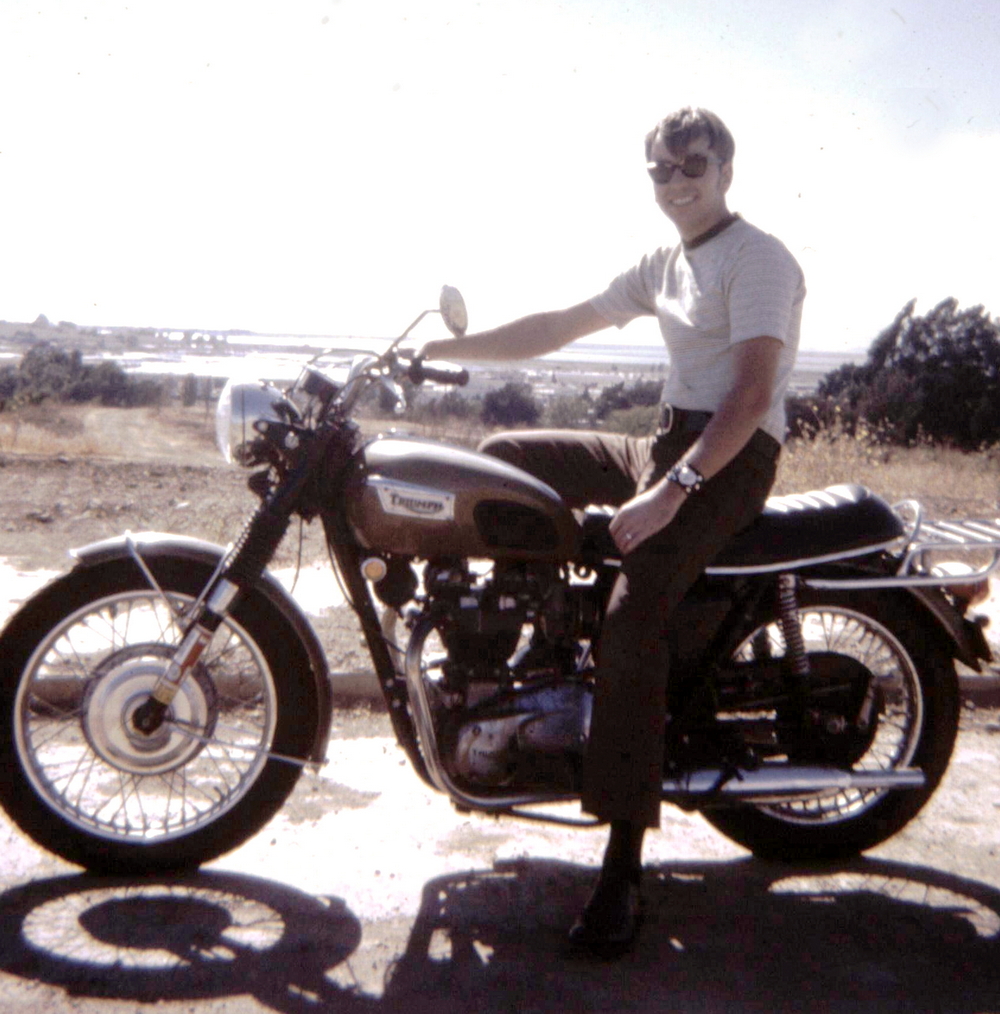
First would be when Gary VanHouten, Jim VanderWerp, Thomas Stephens, Harry Delyanides, and I enlisted together at the Monroe Street Reserve Center in Grand Rapids. We all went to the USS Hank as the last part of our boot camp together before splitting up. We worked hard but laughed a lot too. I would like to contact these guys again, but I know that Harry passed away several decades ago.
Since my entire active duty was on the Long Beach after boot camp, these were the individuals I remember.
I have contacted Glenn Wells, Ron Sprycha, Russ Turner, Gary LaDue, ET Weavers, and Mr. Seamon, but I would like to contact others who were in my division and several Radiomen.
I worked closely. RM Dappio, RM Hendrickson (Hawkeye), RM Gary Mahaffey, and others.
I also recently contacted PO1 Perry Golden (nugget), and I will try to attend the next ships’ reunion.
Others who I remember are Keith Shively, Ron Heller, Ron Smith (Smitty), Homer McMullen (The Cat), Bob Connors, DS2 Thomas Clayton, ET2 McKelvey, ET3 Mike Foister, DS2 Jeff Mayo, ET2 Jim Anthony, ET Fohrer, ET2 Hagen, ET2 Jim Goad, Marine Ken McManis (from Muskegon), ET2 Ron Scheider, Dwight Bowers, and Jack Snyder. Others were DS2 Gaylan Helmers, DS2 Doug Stokes, ET2 Perry Smith, Scott Attenhoffer, Mark Tibbits, Marc Porter, Marty Casto, Ron McCallum, ET1 Means, ET3 Rogers, ET3 Warren, DS1 Hall, ET3 Dave Smith (sardine man).
Another was LT Kevin Stodola and his wife, who kindly had me over for dinner while we were at Mare Island. He also knew I had a Yamaha 250 Big Bear Scrambler my senior year in high school, so I was able to get a pic of me on his beautiful Triumph motorcycle.
Can you recount a particular incident from your service, which may or may not have been funny at the time, but still makes you laugh?
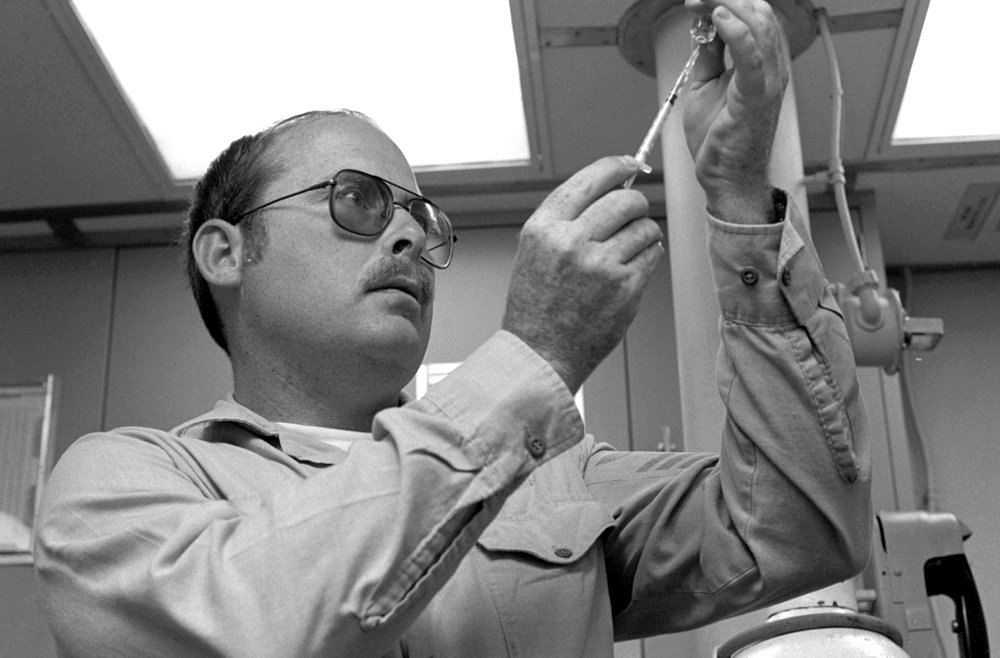
While we were in port in either Singapore or Hong Kong, I walked past the sickbay, and the line of guys was long. The door opened to sickbay, and Corpsman Cooksey was holding a veterinary syringe and needle about a foot long. He told the guys this was what they would get, their penicillin injection for their shore “activities.” Almost on cue, two guys in line fainted.
What profession did you follow after your military service and what are you doing now? if you are currently serving, what is your present occupational specialty?
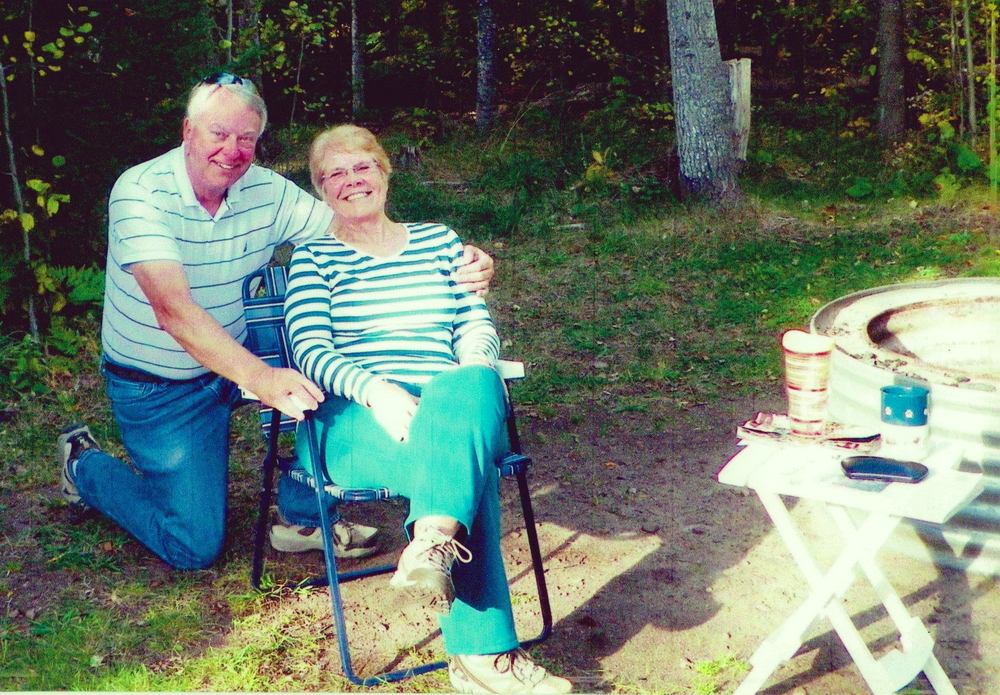
After leaving the service, I used the VA benefits to obtain a BS degree in finance. I worked as a Director of Purchasing/Materials Management/Supply Chain in several hospitals. I used my remaining VA benefits to obtain a Master’s in Management and worked in Healthcare until I retired in 2011. In the last few years of my working career, I was a member of the Dubuque Iowa Rotary and an honorary member of the Dubuque Chamber of Commerce for my work in green environmental initiatives at Finley Hospital, which made us the first large business to be Petal Project Certified. Since then, many businesses in Dubuque have followed. This was a joint effort with the local government.
In late 2017 I began taking the tests to be a licensed Amateur Radio operator. Six months later, I received the amateur Extra License, and I have enjoyed talking to Hams all over the world and continue to do so.
My wife Jan and I have been married for 52 years this year (2022), and we enjoy camping in Michigan State Parks with our small travel trailer and visiting our three grown sons (two of which are married) and our two grandsons. We are also active in our local Presbyterian Church (SLPC.org).
What military associations are you a member of, if any? what specific benefits do you derive from your memberships?
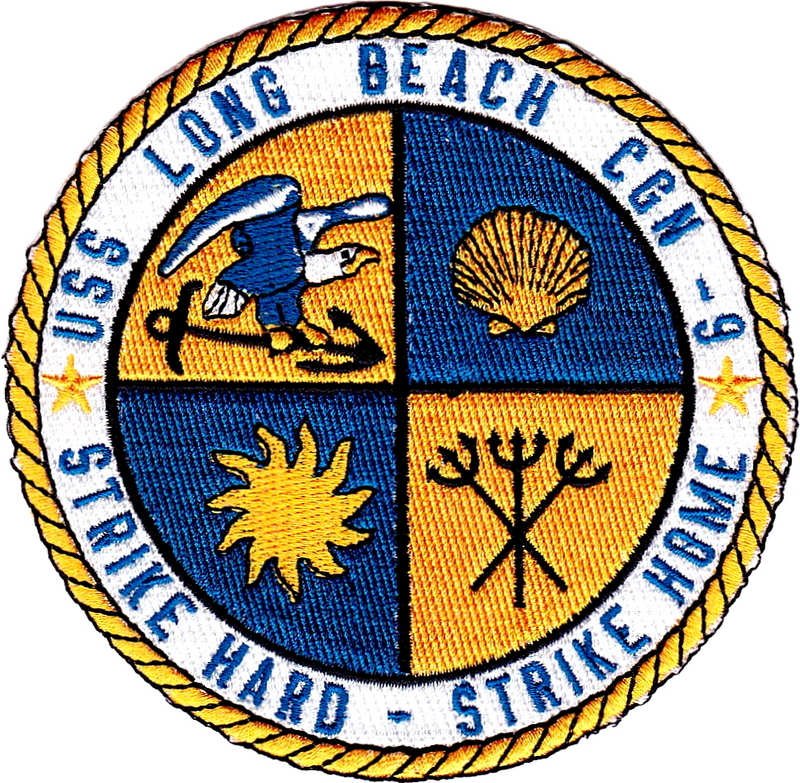
I belong to the USS Long Beach Association to keep abreast of what they are up to.
A couple of years ago, I transferred from being a member at large in the American Legion to the Grand Haven Post 28. In total, I have 25 years as a member.
In what ways has serving in the military influenced the way you have approached your life and your career? What do you miss most about your time in the service?
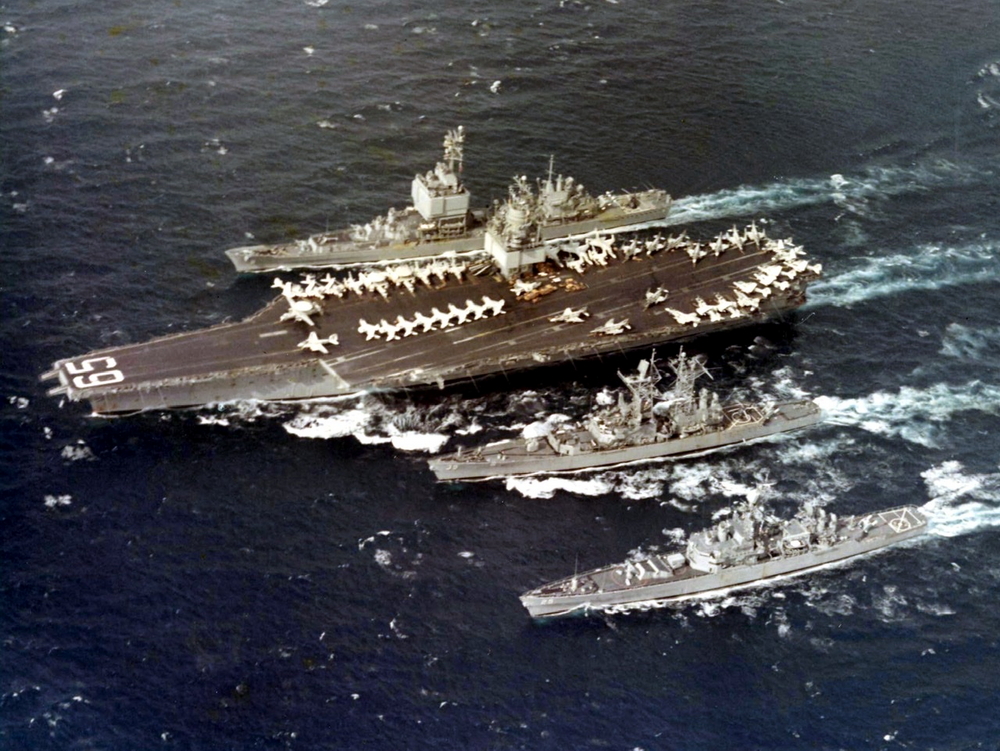
Serving my country gave me a greater sense of purpose and direction. I never was afraid of working hard to achieve my goals to succeed in life.
I do NOT miss pouring water on my cornflakes one time and picking the bugs out of them before I could eat breakfast, and this ensured that my breakfasts were always good in civilian life.
I do miss some of the personalities I worked so well with and the incredible sights of so many different Navy ships and countries during sea duty.
I miss the sudden events like announcing we were leaving our station to join other ships for a photo op. We joined three other nuclear-powered surface ships, steamed in formation, and then left. The ships were the Enterprise, Bainbridge, Truxton, and the Long Beach.
Based on your own experiences, what advice would you give to those who have recently joined the Navy?
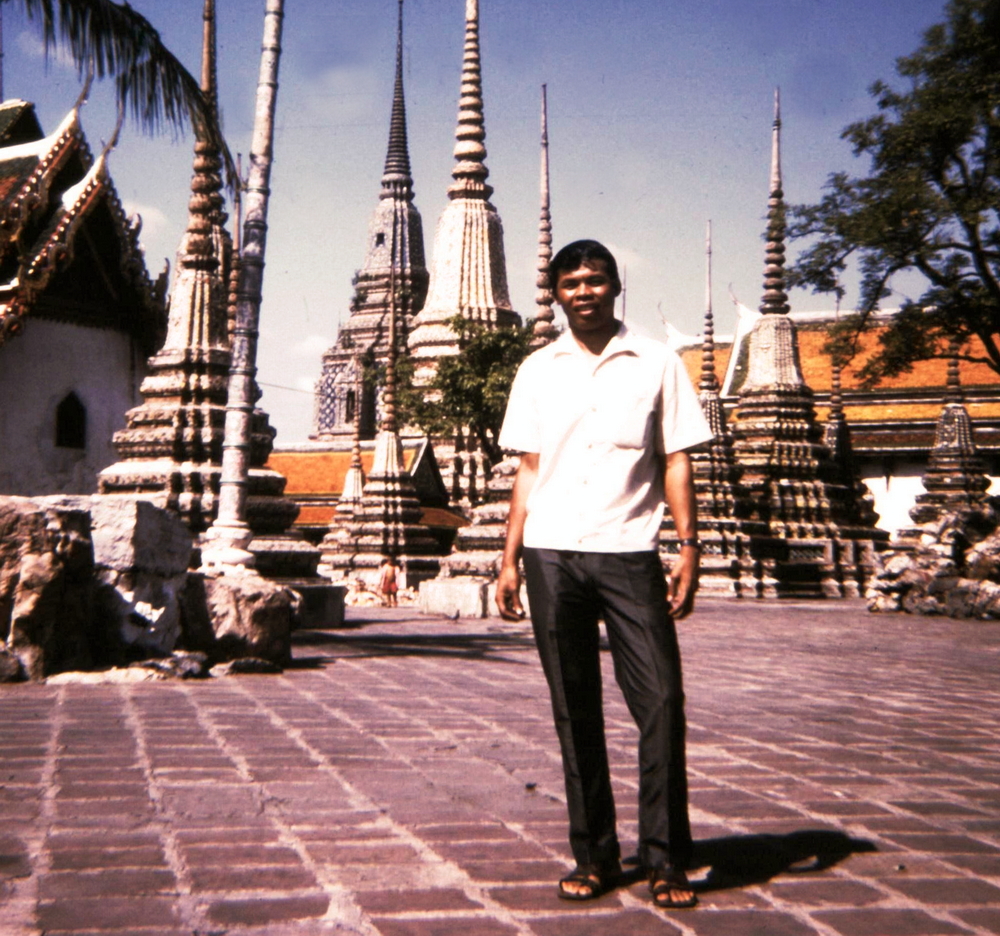
Just as our Drill Instructor CC PO1 Griffor told us in boot camp, “If you go in with a negative attitude, you will come out with a negative attitude, but if you go in with a positive attitude, you will come out with a positive attitude that will get you much further in life.”
Bootcamp is a great equalizer, which is good for all who go through it.
Work hard, be a team player, use self-discipline, be compassionate, use or develop a sense of humor, and work at every opportunity to achieve the next level rank.
The statement is still true…Join the Navy and See the World.
In what ways has togetherweserved.com helped you remember your military service and the friends you served with.
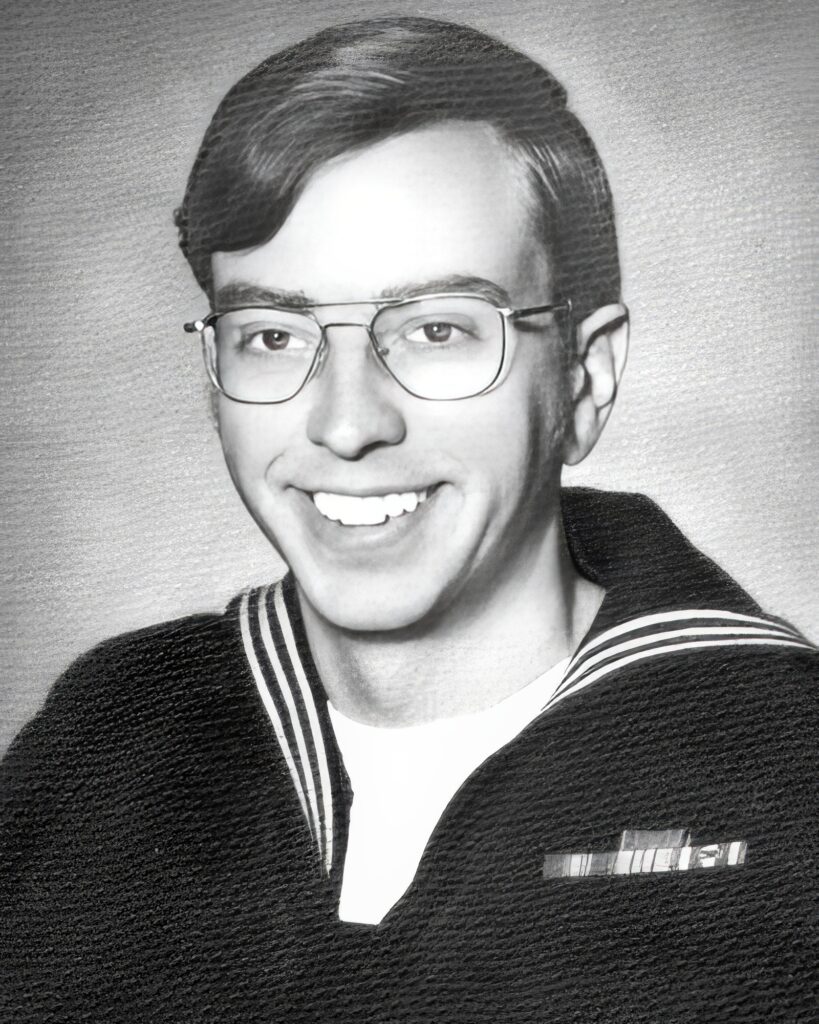
Information was available that allowed me to dig into further detail about my service time, find others I served with, and remember my father, who served in WWII in the Army Air Force.
PRESERVE YOUR OWN SERVICE MEMORIES!
Boot Camp, Units, Combat Operations
Join Togetherweserved.com to Create a Legacy of Your Service
U.S. Marine Corps, U.S. Navy, U.S. Air Force, U.S. Army, U.S. Coast Guard
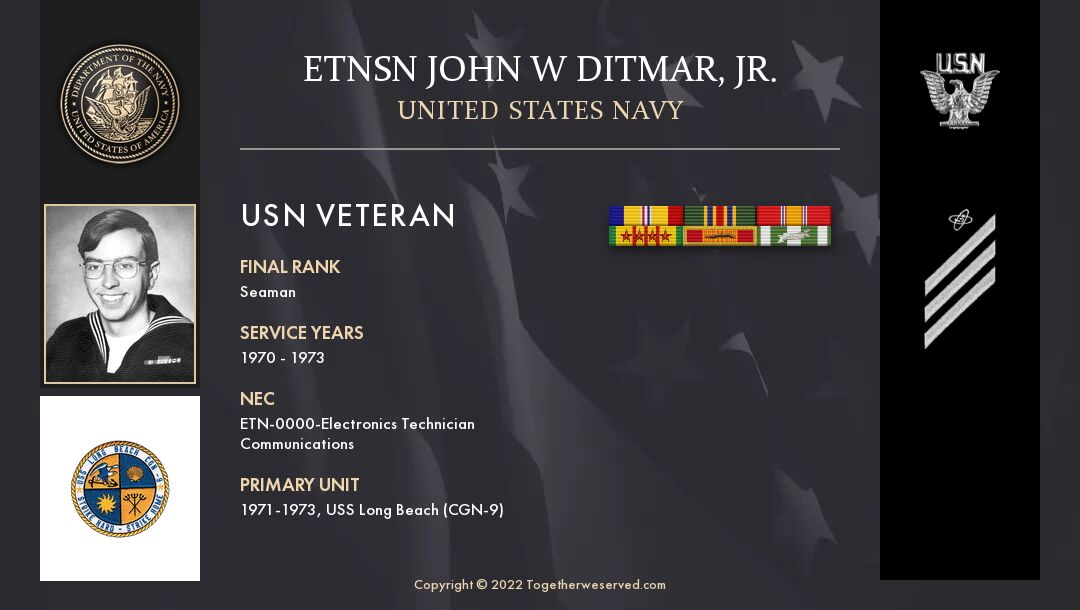
Hi John.
I enjoyed your memories. I was in the Navy from Nov 66 to Aug 70. I made RM2 in Nov 68. Served at NCS Nea Makri Greece, and then with COMIDEASTFOR onboard USS Valcour AGF-1 in the Persian Gulf, Red Sea, Arabian Sea, Indian Ocean theater. Never in Vietnam. We had very different Navy lives. But, when my brother joined the Navy in June 1970, he left me his 1966 Yamaha Big Bear Scrambler motorcyle. I had it for 7 years and gave it back to him. He still has it and just restored it to orginal, as he had modified it when I had it.
I was in Message Center in Greece and worked CW sometimes. Became Supervisor. On the ship I was Supervisor and then Circuit Control. I did burn up one of the stages on the WRT-1 transmitter. The ET2 was not happy and we had to wait for a new part to be sent. Other than that I did a pretty good job while in the Navy. Learned a lot and very proud of my service.
Thanks for sharing your memories.
Saw your name on the TWS Blog and started reading. As you described where you grew up, it got more and more familiar to me along with your last name, which I remembered from school days. You described our home town to a “t”. I served in the Navy from 1967-1971. Graduated in 1965 from Spring Lake High School (first Laker graduating class).
My time in the Navy started in May 1967 at Great Lakes. Later that year I reported to my first duty station in San Diego, Ca – USS SPERRY (AS 12), After two months on deck force I was asked if I wanted to work in the Captain’s Office. Didn’t know what that entailed but agreed to it. I guess that Typing Class at SLHS came in handy. I took that class primarily because there were mostly girls taking it. Anyway, I spent 1967-1969 working for the Captain and XO. I made YN2 in September of 1969. In 1970 I was transferred to the Repair Office to be their (only) Yeoman. That prepared me for my next duty as I was transferred to the USSS WHITE SANDS (ARD 20) to run the Personnel Office with one seaman working for (with) me. I was discharged in February 1971 on a three month early out program as the Navy was downsizing after the Viet Nam war wound down.
Loved living in San Diego, married a local girl in 1970 and had two children – a boy (Kevin – 1970) and next a girl (Stacy – 1975. We stayed in San Diego until 1978 when we moved back to good, old Spring Lake. Both my children received a great education at Spring Lake and both went on the graduate from college and returned for the Masters degree – Kevin in Social Work and Stacy in Education. Kevin currently works at the VA Hospital in Philadelphia, PA and Stacy teaches in Anniston, AL, just down the road from Talledega and the famous NASCAR Raceway. They both have two children each – all girls.
Eventually their mother and I divorced in 1978. I floundered around until meeting a fellow Laker in 1998 and we married in 2001. She mentions that she knows both you and your wife, Jan. Her maiden name was Cathee Coats and she graduated in 1970 from SLHS and went on to get a degree in Social Work from Hillsdale. We are both retired now and enjoying life in “the bubble”. Cathee contracted MS and had to retire early from her job at Muskegon Mental Health. I followed her into retirement after I turned 62 and the rest is history.
Good to see a familiar name and connection to our beloved Spring Lake Village We now live in the Township on State Road near 148th. If you remember, the location used to be a horse farm and we moved here in 2004 to a condo development called Saddlebrook Farms.
One last memory. Many years back I remember talking to a man at an away football game at Orchard View. I don’t know if that was you, a relative or ……. What I remember best was that he had your last name and was there watching his talented son play. Funny, I can remember things like that long ago but can’t literally remember what I had for breakfast. Must be getting old – 76 in December.
Loved reading your blog. I have one comment. Your remembrance of the photo shoot with the nuclear ships was great. I have seen the picture published several times. Would like to make one correction – the “Tommy T” was TRUXTUN (not Truxton). My husband was Crew on the Truxtun and very proud. She was a great ship, the last ship completed in New York Shipbuilding in Camden, NJ, and the fourth to have that name. She was also a Class of one! No others ships in her class.
Thank-you for proving your example with your blog. And thank-you for not remembering me, Mr. Ditmar. Your name has come to me several times over the years. The memory that comes to me was that you had a college degree already, maybe in something technical BS or BA. I arrived at your blog this morning thinking about Jim Anthony, DS. I apologize for my cigarette second hand smoke which came into being during my stay in Electronics School, TI. You were always kind to me. I don’t compare myself to others, so it is in this stead, I appreciate and am glad you have done well for yourself. I wish I had let my good side develop while on the ship. If I knew what I know now before I went to bootcamp, I may have been a happy WarrantOfficer like Mr. Seaman. I could not remember most of the names I met and wish I could have respected them more. I sincerely would like to apologize to LtJg Burr. His family name is one I learned about in my reading of the man with no country–Aaron Burr. Changed my name to Blu Earl. Currently in The Dalles, OR.